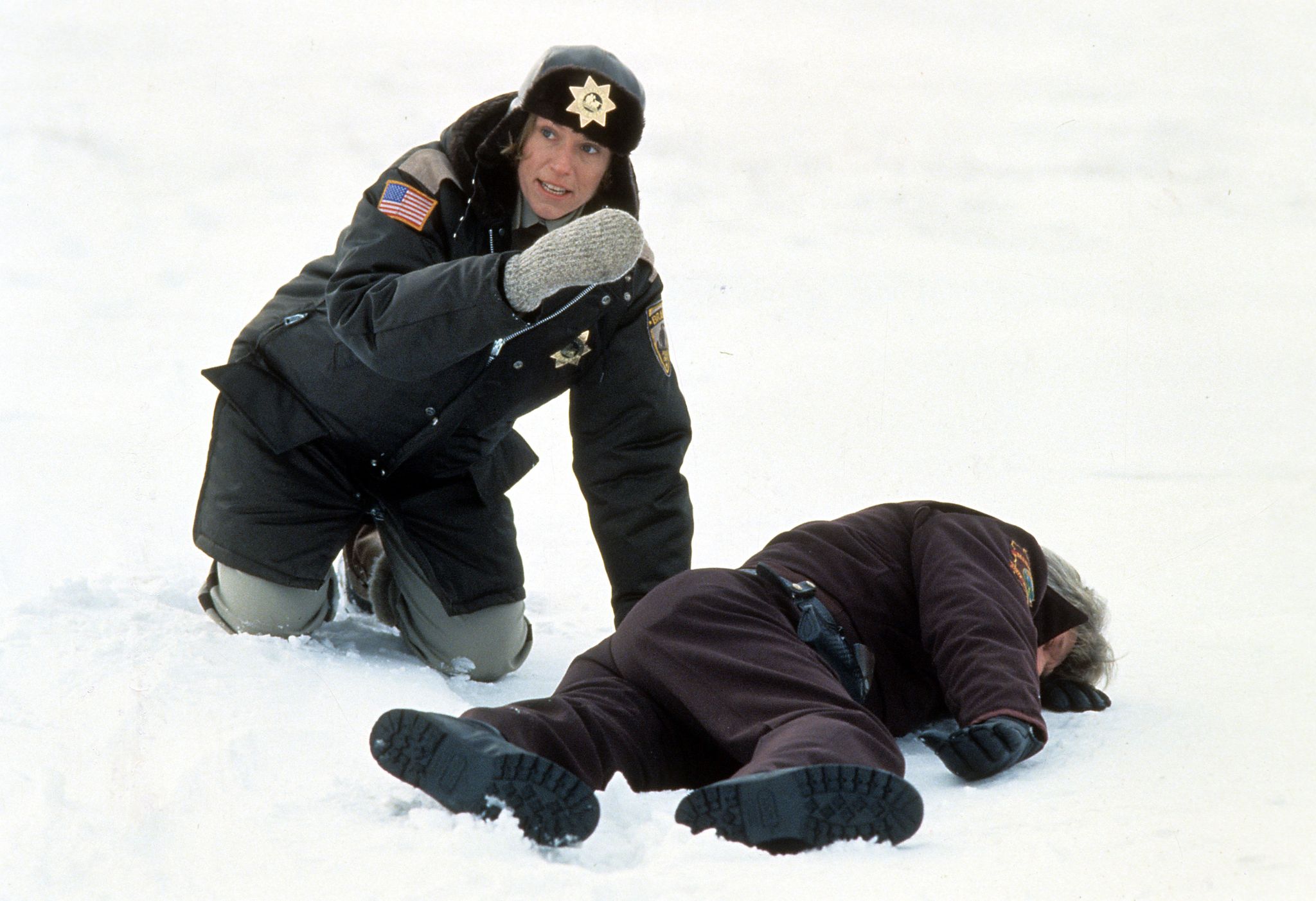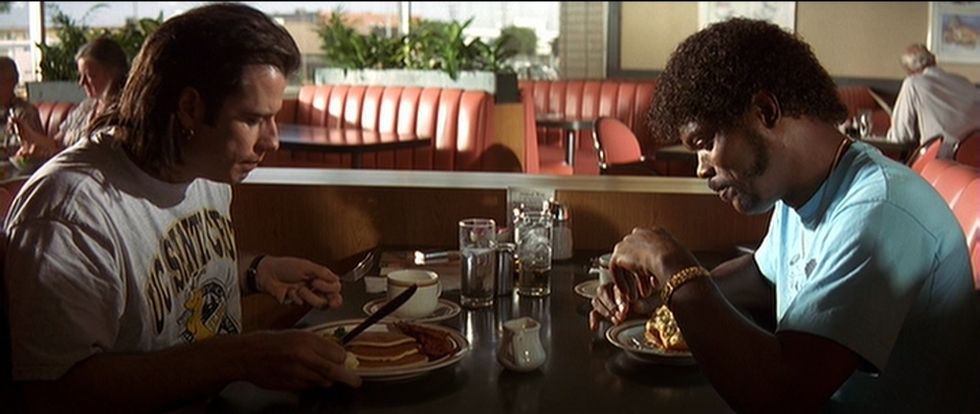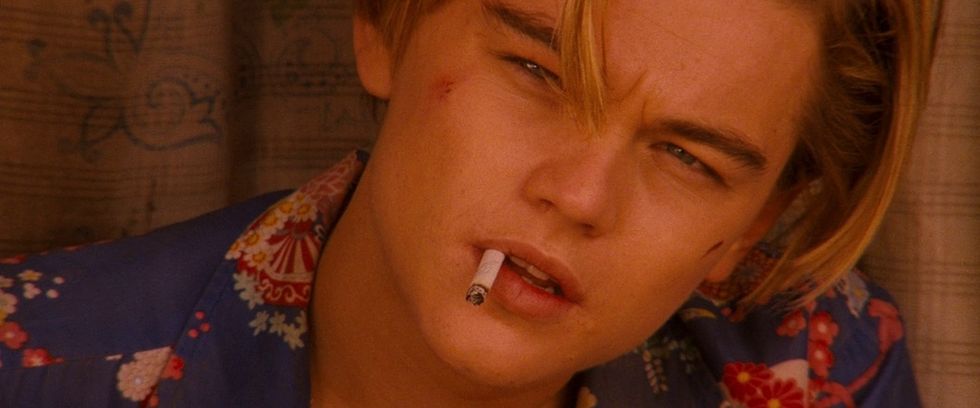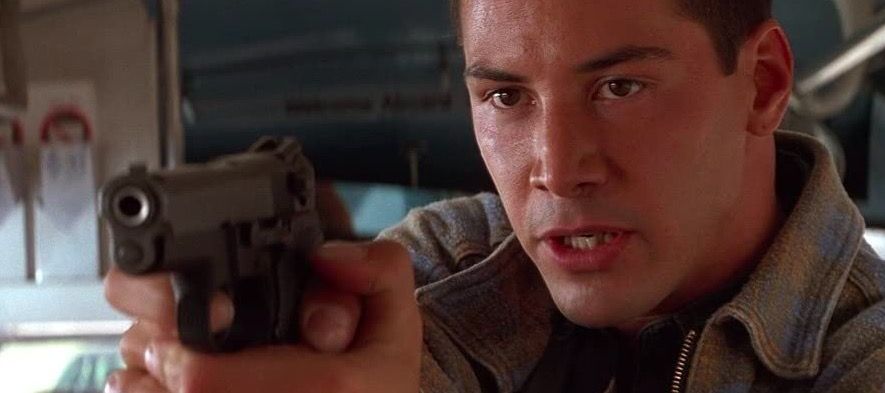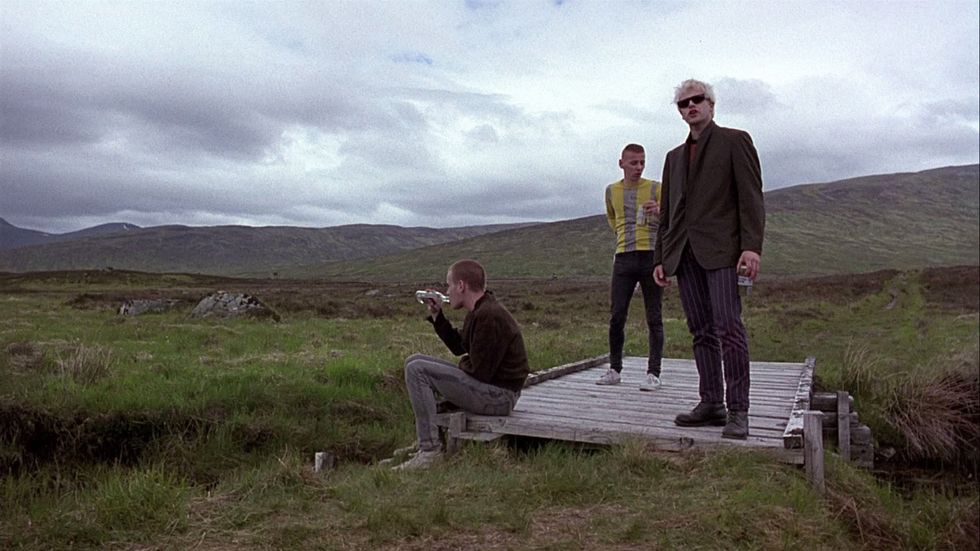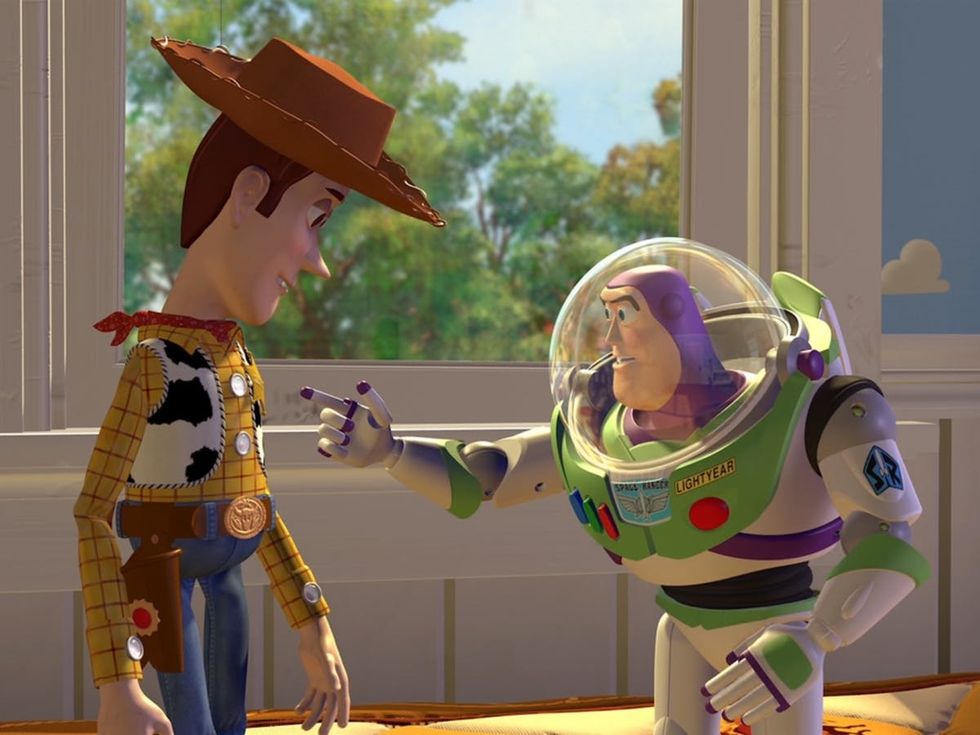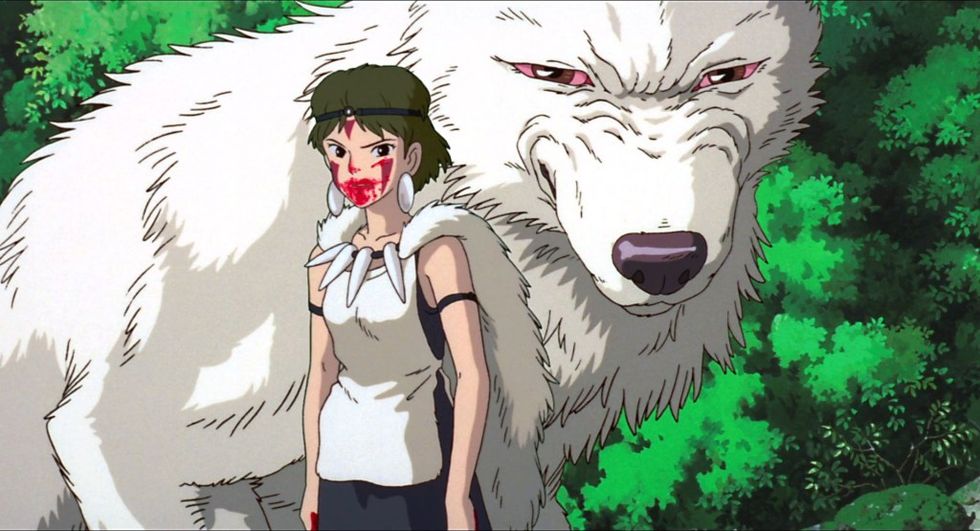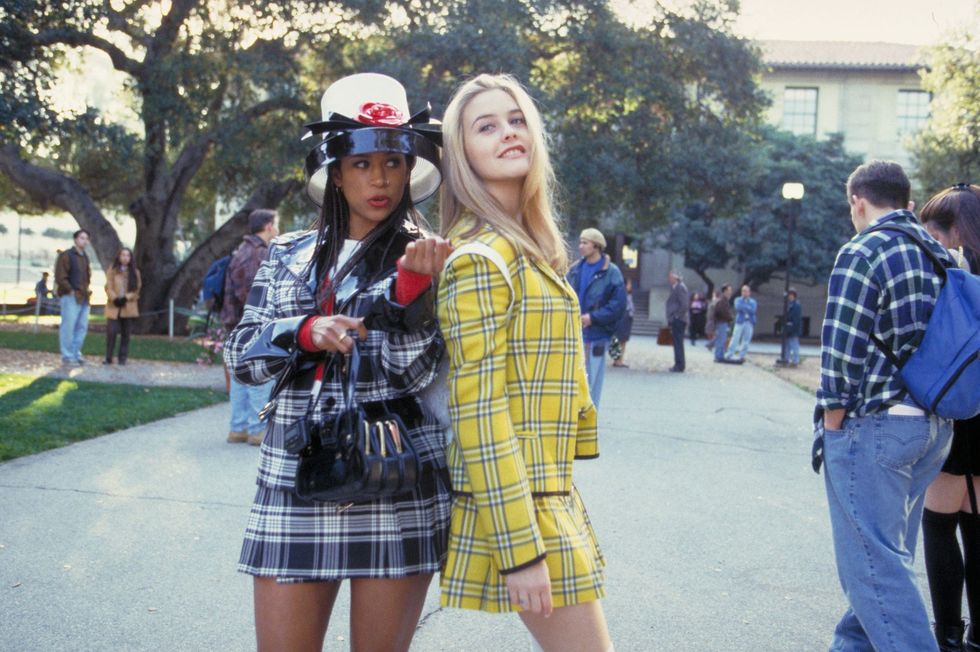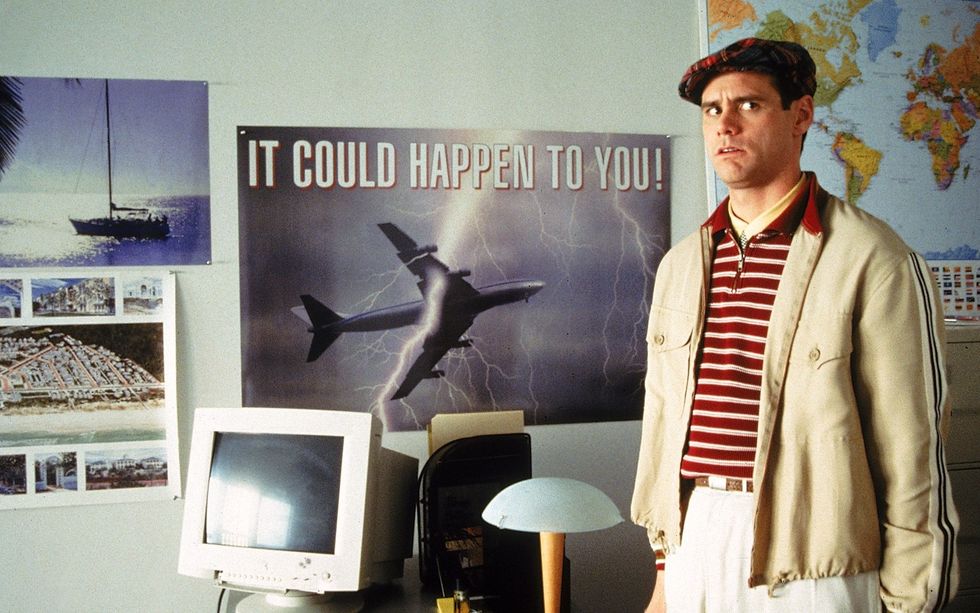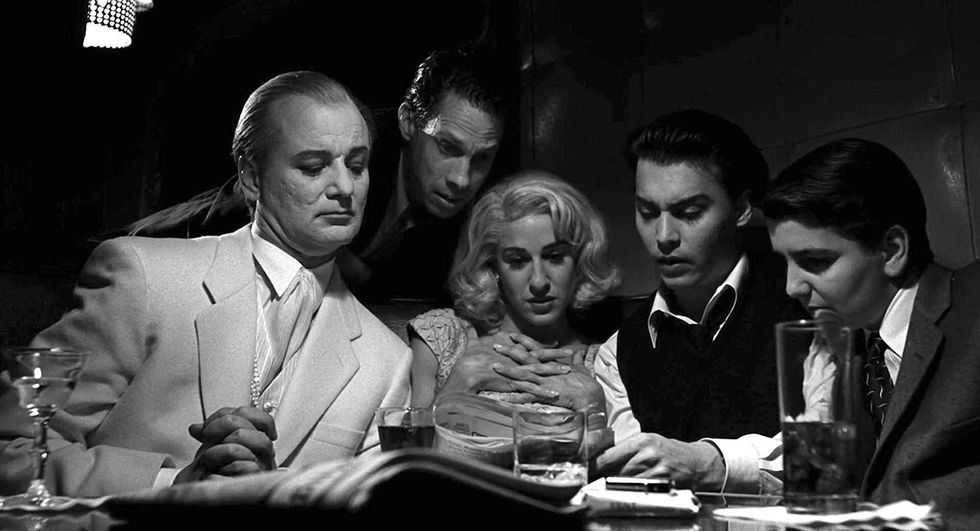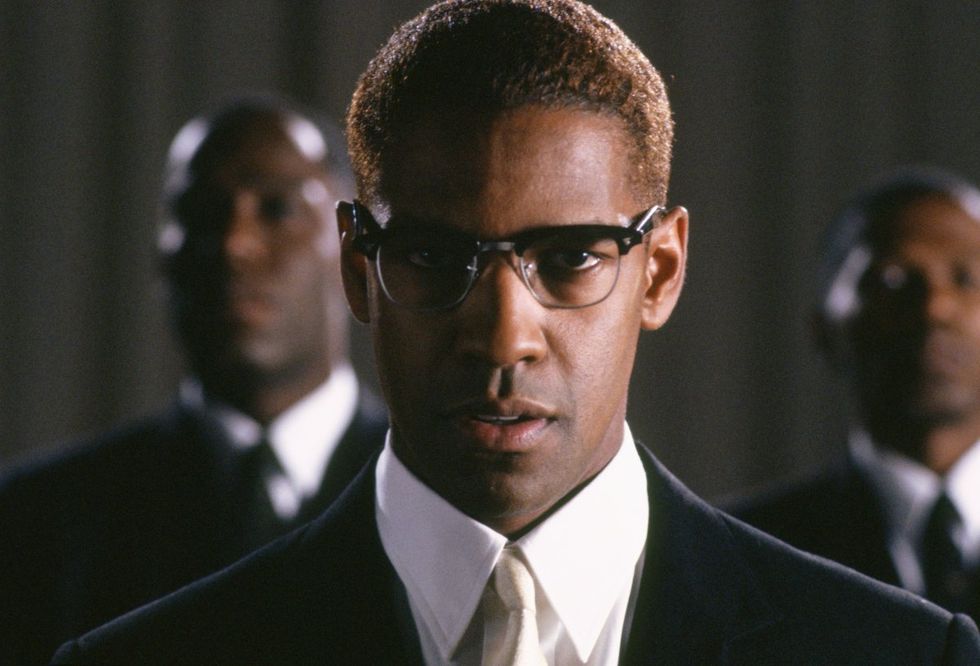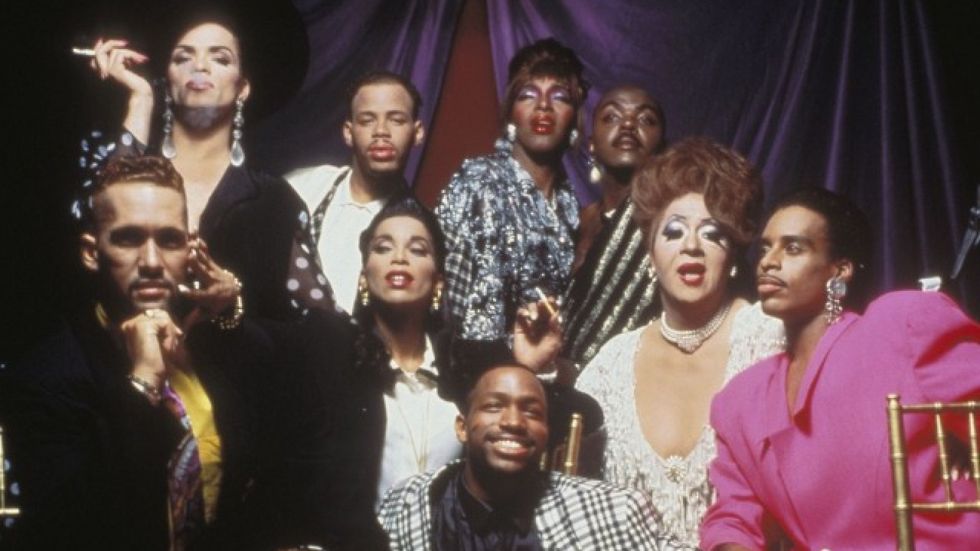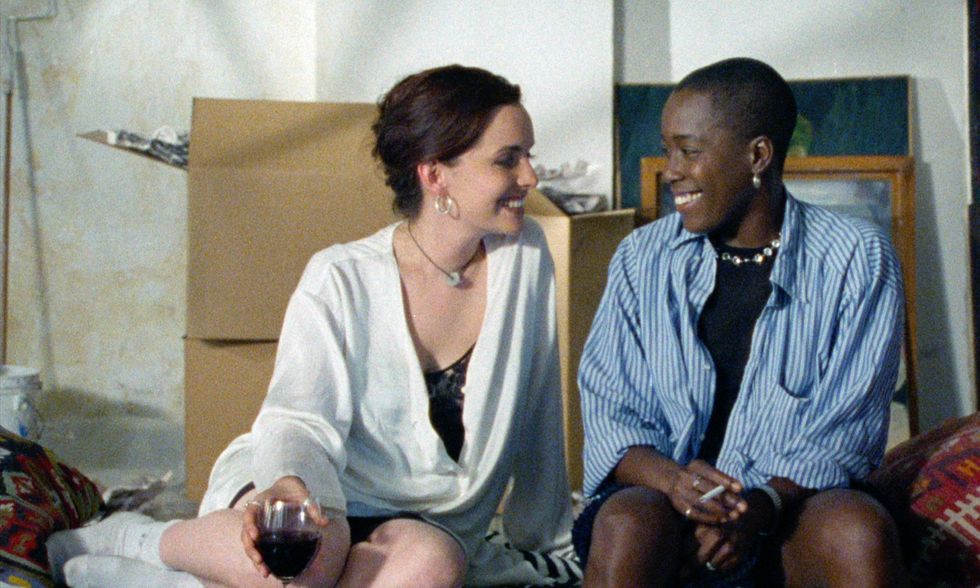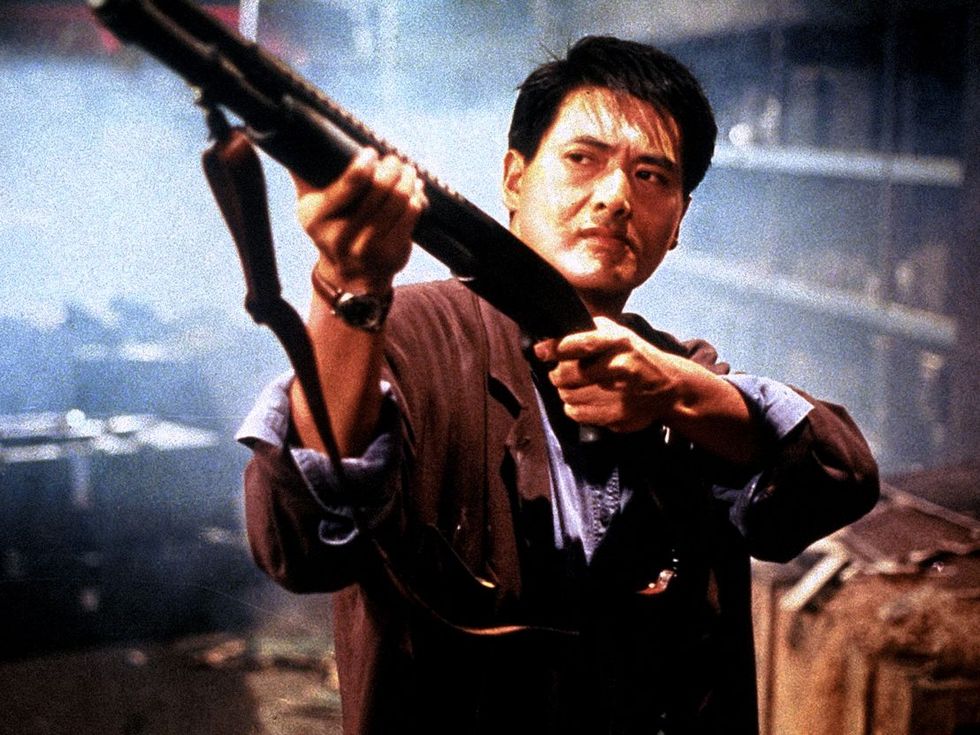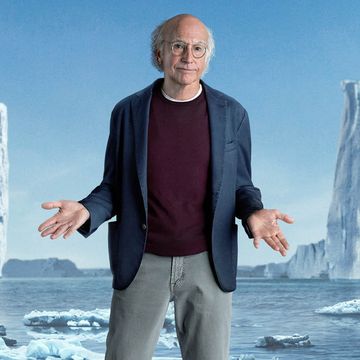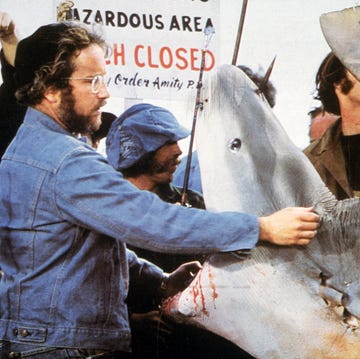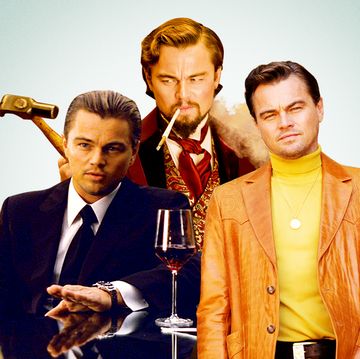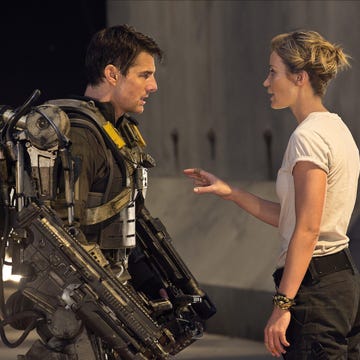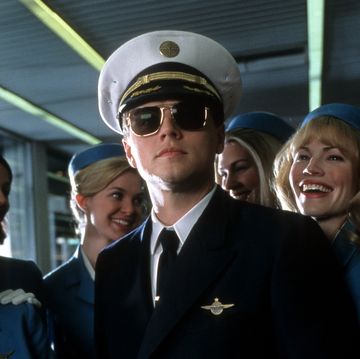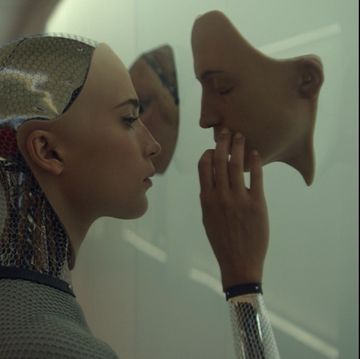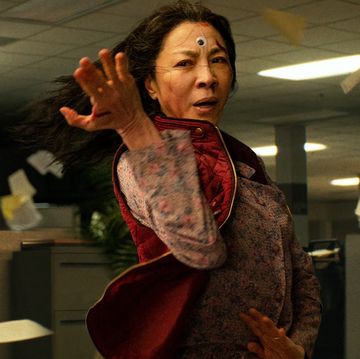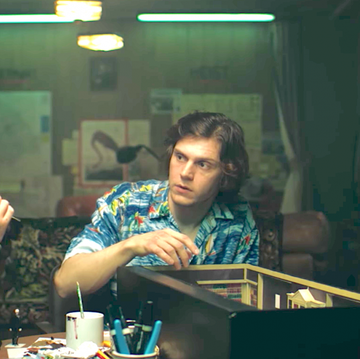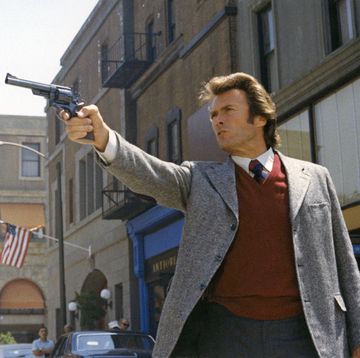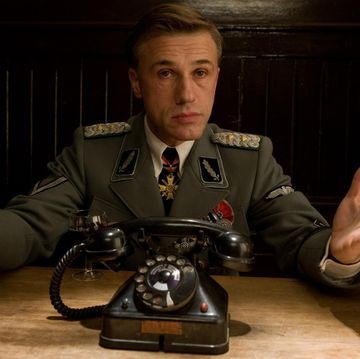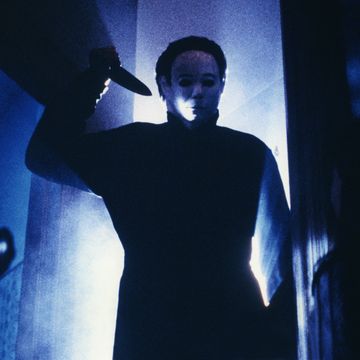Looking back from here, the Nineties feels like a blusteringly upbeat time of techno-optimism: the Iron Curtain unravelled, a decrepit post-Thatcher Tory government gradually crumbled, and our commuting problems were solved by the rise of the wheely trainer.
The films we went to see, though, point to something different. Look at the 20 biggest films of the decade and two themes emerge: disasters and space. You've got Armageddon, Titanic, two Jurassic Parks and Twister; and you've got Star Wars Episode I, Independence Day and Men in Black. Plus there's The Sixth Sense, which was pretty disastrous for Bruce Willis' Malcolm Crowe. There's definitely some end-of-the-century queasiness there, and a sense that something's not quite right.
Compare that to the Noughties (fantasy and superheroes) or the Eighties (adventure blockbusters plus a grab-bag of family films and Rain Man). Even considering James Bond's resurgence and Disney's second golden age, the Nineties box office points to a particularly Gen X strain of nihilism and angst. The Matrix, The Truman Show and Fight Club all pulled at the seams of reality and asked whether the job, the car, the white picket fenced house was worth it. This might be the most Nineties trait of all, though: moaning about the house you can afford and the car you don't feel guilty about because nobody's that bothered about global warming or international terrorism or credit defaults yet.
It was a decade when blockbusters got bigger and so did the conglomerates which gobbled up the studios that made them, but there were loads of interesting indies around too while British cinema enjoyed a Danny Boyle- and Richard Curtis-led resurgence. These are some of the best films of the decade which perhaps, more than most others, predicted our own.
Fargo (1996)
Yes of course Frances McDormand was great in Nomadland, and Three Billboards Outside Ebbing, Missouri, and everything else she’s been in ever, but for us it was her turn as Marge Gunderson, the amiable, no-nonsense (also, for extra props: heavily pregnant) police chief of the titular Minnesota town in the Coens’ 1996 black comedy that will always be our favourite. Much like the recent spin-off series, the original film focused on a Joe Schmo in over his head – in this case a car dealership manager played by William H Macy, who hires two goons (Peter Stomare and Steve Buscemi) to kidnap his wife so that he can extract money from his father-in-law. Spoiler alert: it doesn’t go to plan.
Pulp Fiction (1994)
Tarantino purists would probably put Reservoir Dogs ahead of the director’s Palme d'Or winner from two years later, but if you’re looking at films that captured – nay, transformed – the cultural zeitgeist then Pulp Fiction has got to be the one. The dialogue is almost liturgy these days: the Royale with cheese! Shooting Marvis in the face! And so are the iconic scenes: Vince and Mia’s dance-off; the aforementioned hamburger debate. And let’s not forget the sublime casting of John Travolta as hitman Vince Vega, who had been in the doldrums since Grease nearly two decades early. Who knew that he could pull off long black hair, sexy dance moves, and hold his own against Samuel L Jackson? QT, that’s who.
William Shakespeare's Romeo + Juliet (1996)
If Baz Luhrmann were going to update William Shakespeare’s tragic romance for the current age, he probably would have gone for a collab-style “Romeo x Juliet” (horrors!), but this was 1996, when even a cheeky plus sign seemed a radical thing to do to the Bard’s handiwork. The Australian director of Strictly Ballroom did, however, choose to keep the language untouched, with stars Claire Danes and Leonardo DiCaprio – the latter in the twilight days of his gangly phase – giving the star-cross’d lovers a modern, highschooly angst. But it was the peripherals that have really stood the test, from the peppy, of-its-time soundtrack (Cardigans’ “Lovefool”! The Wannadies’ “You and Me Song”!) to the shirt that launched a thousand… other shirts.
Speed (1994)
Not just the Nineties' most Nineties film star's best film, but the most Nineties film of the Nineties. Post-Die Hard lone wolf good guys ruled the action blockbuster, and Keanu Reeves' close-cropped hot-headed cop Jack is the loneliest of lone wolves. He and his more sober buddy Harry foil an attempted ransom plot, but the mastermind behind it (a delightfully unhinged Dennis Hopper, fresh from playing President Koopa in Super Mario Bros) has a plan to get his own back. He's stolen a bus, and if it goes below 50 miles an hour, it's going to explode. It's a story with a simple message: ignore everyone's advice and do the most stupid thing you can think of in any situation, because even the most cautious among us can be unceremoniously exploded in their prime. And pray silence please for the best/dumbest line in any Nineties action film: "Cans! It was just cans!"
Trainspotting (1996)
I will argue to my dying breath that Danny Boyle's debut Shallow Grave is at least the equal of Trainspotting, but given Shallow Grave didn't singlehandedly keep Freshers' Week poster salesmen gainfully employed for two decades it'd be an act of Begbie-esque dumb violence to ignore Trainspotting. We can break it down into its constituent parts and try to riddle out why it's still so potent: Brian Tufano's hard, flat compositions; the fantasy sequences into the worst toilet in Scotland and down into an overdose; John Hodge's sly, dry script; a storming, gorgeous soundtrack featuring Underworld, Blur, Pulp and Elastica. There's something alchemical about it though.
Toy Story (1995)
It's odd to think that cinema could be wholly different if one pitch meeting for The Brave Little Toaster had gone differently. As it is, John Lasseter got a firm no and the sack not long after, and he ended up co-founding Pixar. You've definitely heard this said before, but it's worth restating: Toy Story completely redrew what was possible with computer animation. After a tortuous, stop-start production which nearly killed Pixar – at one point, while recording his lines, Tom Hanks pointed out that script changes had turned Woody into "a jerk" – Toy Story proved feature-length computer animations weren't just possible, but as capable of telling expressive, moving stories as hand-drawn animation had. From here, there's a straight line through Shrek, Ice Age and Avatar to the Marvel Cinematic Universe.
Princess Mononoke (1997)
Studio Ghibli's environmentally minded blockbuster follows the prince of a medieval Japanese village who, injured in a fight with a god of the forest, has to head into the god's habitat to find a cure. He finds a lot more on the way than he bargains for: humans are destroying the natural world which the gods have always lived in to mine and make guns, and, understandably, the gods aren't happy. Hayao Myazaki made sure every one of the 144,000 cels of Princess Mononoke were up to scratch, and redrew bits of around 80,000 of them; you can feel that intensely personal connection right through this lush, epic romance, and that's what sets it apart even among Ghibli's greatest works.
Clueless (1995)
Cher Horowitz is queen bee at her Beverly Hills high school, but after her stepbrother Josh points out that she's a bit shallow she takes on a new, healing outlook. After matching up two lonely heart teachers, she starts her biggest project: turning new girl Tai into a social climber, just like her. Things do not pan out as hoped. Amy Heckerling's diamante-bright reimagining of Emma is packed with great, great lines – the best of which, for the record, is "Isn't my house classic? The columns date all the way back to 1972" – and skewers high school movies while becoming the quintessential example.
The Truman Show (1998)
Jim Carrey's arrival as a dramatic actor became not just a film, but a treatise on surveillance, a parody of consumerism, an existential tract and the name of a recognised psychological disorder. Truman is an ordinary man bouncing through a superficially contented life, not realising that he's living in a gigantic TV studio as the star of the world's most popular show.
The Truman Show doesn't miss any chance to play with both the idea of a whole universe that's constructed specifically for TV and the universe which forms around it in the outside world. It's full of deeply satisfying touches but the smartest, I think, is the rockabilly version of '20th Century Boy' by T Rex which we hear at Truman's high school dance; in a few seconds, you can guess that his world is one where the youth revolution and the counterculture never happened. Slowly, though, the truth begins to dawn on him.
Ed Wood (1994)
The story of Hollywood's most relentlessly unsuccessful director is a heartwarming one in Tim Burton's hands. Ed Wood was responsible for some of the most endearingly shoddy stinkers in all of cinema – Plan Nine from Outer Space, Night of the Ghouls, Glen or Glenda – and Burton's biopic follows him as he attempts to break into Hollywood and assembles a rag-tag bunch of has-beens and no-hopers around him as he makes his unremittingly awful pictures. It's very funny, but it's also a sincere and hopeful film about the power of dreams.
Beau Travail (1999)
A retired army man recalls his days commanding a section of the French Foreign Legion stationed in Djibouti. That's kind of as much plot as you're likely to need or get in Claire Denis' Beau Travail, loosely based on Herman Melville's Billy Budd: this is one to lie back and luxuriate in rather than trying to riddle out. It's absolutely gorgeous, sweaty and sensuous and pretty inscrutable, but moving all the same. It's about jealousy and revenge, but it's also about how cinema works as a way of making you feel things without telling you to.
Malcolm X (1992)
Spike Lee's biopic of the civil rights leader follows the full span of his life, from his tough upbringing in rural Michigan to his assassination. Lee wasn't initially involved, but after a huge blowback against the white director Norman Jewison attempting to tell the story of an icon of Black America he got the gig. "If Norman actually thought he could do it," Lee recalled later, "he would have really fought me. But he bowed out gracefully." As sure-handed as Lee's direction is, this is all about Denzel Washington's astounding performance as Malcolm X.
Paris is Burning (1990)
Thirty years after its release, it's striking how many parts of queer and trans culture and the New York ball scene which Paris is Burning showcases have become part of the cultural mainstream. For instance, there's the scene where Dorian Corey explains shade: "I don’t have to tell you you’re ugly… I don’t have to tell you because you know you’re ugly. That’s shade." While its legacy has been chewed over by everyone from bell hooks to Judith Butler, this documentary's power is in its willingness to get out of the way of the people and performers who made the ball scene such an important and potent expression of sexuality and identity.
The Watermelon Woman (1996)
This multi-hyphenate rom-com-drama-mockumentary was at least a decade ahead of its time: documentary director Cheryl Dunye plays Cheryl, a director who's making a documentary about a forgotten actor from the Thirties. She becomes fascinated by a Black actor who turned up in 'mammy' roles and whose only on-screen credit is 'the watermelon woman', and decides to track her down. It's become a cornerstone of queer cinema, and a funny, touching indictment of who gets to make the history that we think we know.
Hard Boiled (1992)
This is the cop action film which other cop action films are intimidated by. It starts with a shoot-out in a Hong Kong teahouse and gets bigger and more gnarly from there. Jaded and angry after losing a colleague, 'Tequila' Yuen is ordered off the case. Meanwhile, an undercover cop has infiltrated another gang, and he and Tequila team up to try to take them down. There follows a lot of double-crossing, even more wild shoot-outs, and some of the best action scenes ever filmed. John Woo was the main man in the Hong Kong action films which transformed the way that people beat each other up forever.

Miranda Collinge is the Deputy Editor of Esquire, overseeing editorial commissioning for the brand. With a background in arts and entertainment journalism, she also writes widely herself, on topics ranging from Instagram fish to psychedelic supper clubs, and has written numerous cover profiles for the magazine including Cillian Murphy, Rami Malek and Tom Hardy.
